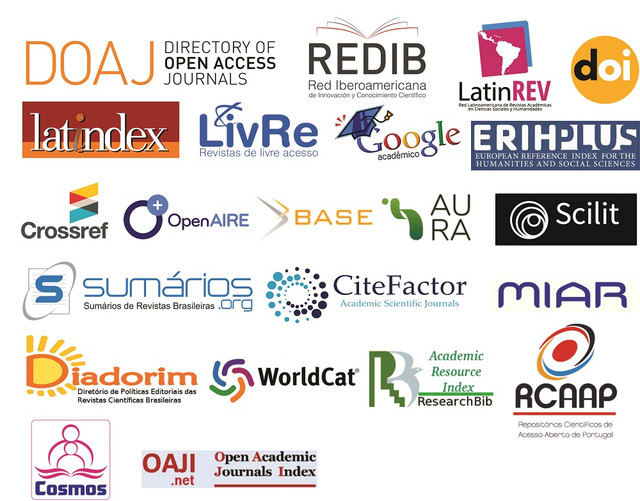Addressing Mental Health Impacts in Cancer Patients and Survivors at Federally Qualified Health Centers
Palabras clave:
Hodgkin's lymphoma, cancer, mental healthResumen
I was diagnosed with Hodgkin’s Lymphoma on October 9th, 2020, as a senior in college during the height of the COVID-19 pandemic. My brush with cancer held the mirror of my mortality to my face which induced a level of clarity that transformed the course of my life. I now live a life that is committed to integrating health justice at individual, local, and systemic levels.
Over the course of my time in chemotherapy, radiation, and remission I was privileged to have ample resources to address my immediate physical health. However, I lacked sufficient tools to address the acute and long-term effects cancer had on my mental health. I noticed there were gaps in care to detect and integrate mental health services into the cancer patient experience and long-term recovery. Therefore, after college, when I started my first full-time job, I was determined to incorporate my embodied knowledge into my advocacy goals as a Health Policy Research Fellow at the Weitzman Institute. My experience with cancer coupled with my positionality as an Indian Muslim American woman motivates me to examine the impact cancer has on the mental well-being of people who hold marginalized identities—especially racial and ethnic minorities. Thus, this blog post was born seeking to contextualize cancer and mental health screenings in Federally Qualified Health Center (FQHC) populations.
Descargas
Citas
Clarke, D. M. (2010). No cancer health without mental health. Medical Journal of Australia, 193(5), S43.
Caruso, R., & Breitbart, W. (2020). Mental health care in oncology. Contemporary perspective on the psychosocial burden of cancer and evidence-based interventions. Epidemiology and Psychiatric Sciences, 29.
Daré LO, Bruand P, Gérard D, et al. (2019). Comorbidities of mental disorders and chronic physical diseases in developing and emerging countries: a meta-analysis. BMC Public Health, 19: 304.
Bhakta, P. N., Hunzeker, Z. E., Gudipally, S. R., Willis, M., & Venkatesan, R. (2022). Screening for anxiety and depression in cancer patients using PHQ4.
Halfin, A. (2007). Depression: the benefits of early and appropriate treatment. American Journal of Managed Care, 13(4), S92.
Simard, S., Thewes, B., Humphris, G., Dixon, M., Hayden, C., Mireskandari, S., & Ozakinci, G. (2013). Fear of cancer recurrence in adult cancer survivors: a systematic review of quantitative studies. Journal of Cancer Survivorship, 7(3), 300-322.
Federally Qualified Health Centers (FQHCs) and the Health Center Program. Rural Health Information Hub. (2021, December 11). Retrieved September 16, 2022, from https://www.ruralhealthinfo.org/topics/federally-qualified-health-centers
Michelle Tong, L. H. F. @hill_latoya on T. (2022, February 3). Racial disparities in cancer outcomes, screening, and treatment. KFF. Retrieved August 10, 2022, from Https://Www.Kff.Org/Racial-Equity-And-Health-Policy/Issue-Brief/Racial-Disparities-In-Cancer-Outcomes-Screening-And-Treatment/
Williams, D. R. (2018). Stress and the mental health of populations of color: Advancing our understanding of race-related stressors. Journal of health and social behavior, 59(4), 466-485.
Bailey, R. K., Mokonogho, J., & Kumar, A. (2019). Racial and ethnic differences in depression: current perspectives. Neuropsychiatric disease and treatment, 15, 603.
Blue Cross Blue Shield. (2022, May 31). Racial disparities in diagnosis and treatment of major depression. Blue Cross Blue Shield The Health of America. Retrieved August 11, 2022, from https://www.bcbs.com/the-health-of-america/reports/racial-disparities-diagnosis-and-treatment-of-major-depression
National Health Center Program Uniform Data System (UDS) awardee data. Health Resources & Services Administration. (2021). Retrieved September 16, 2022, from https://data.hrsa.gov/tools/data-reporting/program-data/national
NACHC, 2019. Based on 2018 Uniform Data System data on federally-funded and look-alike health centers, estimates for annual patient growth, and national data sources. (2) Bureau of Primary Health Care. 2019. Health Center Program Fact Sheet. Available from Https://Bphc.Hrsa.Gov/Sites/Default/Files/Bphc/About/Healthcenterfactsheet.Pdf
National Health Center Program Uniform Data System (UDS) awardee data. Health Resources & Services Administration. (2021). Retrieved September 16, 2022, from https://data.hrsa.gov/tools/data-reporting/program-data/national
Mitchell, A. J., Meader, N., Davies, E., Clover, K., Carter, G. L., Loscalzo, M. J., … & Zabora, J. (2012). Meta-analysis of screening and case finding tools for depression in cancer: evidence based recommendations for clinical practice on behalf of the Depression in Cancer Care consensus group. Journal of affective disorders, 140(2), 149-160.
Institute of Medicine. (2006). From cancer patient to cancer survivor: lost in transition. Committee on Cancer Survivorship: Improving Care and Quality of Life.
Reynolds , C. (n.d.). Why Mental Health Screenings should be a regular part of cancer care. Mental Health America. Retrieved September 16, 2022, from https://mhanational.org/blog/why-mental-health-screenings-should-be-regular-part-cancer-care
Kissane, D. W. (2014). Unrecognised and untreated depression in cancer care. The Lancet. Psychiatry, 1(5), 320-321.
Hahn, E. E., Munoz-Plaza, C. E., Pounds, D., Lyons, L. J., Lee, J. S., Shen, E., … & Gould, M. K. (2022). Effect of a Community-Based Medical Oncology Depression Screening Program on Behavioral Health Referrals Among Patients With Breast Cancer: A Randomized Clinical Trial. JAMA, 327(1), 41-49.
Kallem, S., Matone, M., Boyd, R. C., & Guevara, J. P. (2019). Mothers’ mental health care use after screening for postpartum depression at well-child visits. Academic pediatrics, 19(6), 652-658.
van Meijel, E. P., Gigengack, M. R., Verlinden, E., Opmeer, B. C., Heij, H. A., Goslings, J. C., … & Lindauer, R. J. (2015). Predicting posttraumatic stress disorder in children and parents following accidental child injury: evaluation of the Screening Tool for Early Predictors of Posttraumatic Stress Disorder (STEPP). BMC psychiatry, 15(1), 1-8.
Halfin, A. (2007). Depression: the benefits of early and appropriate treatment. American Journal of Managed Care, 13(4), S92.
Seton, A. (2016, October 28). Importance of addressing mental health symptoms early. Behavioral Health Care. Retrieved August 2, 2022, from Https://Www.Seton.Net/Behavioral-Health-Care/2016/10/27/Importance-Addressing-Symptoms-Early/
Center for Substance Abuse Treatment (US). Trauma-Informed Care in Behavioral Health Services. Rockville (MD): Substance Abuse and Mental Health Services Administration (US); 2014. (Treatment Improvement Protocol (TIP) Series, No. 57.) Chapter 4, Screening and Assessment. Available from: https://www.ncbi.nlm.nih.gov/books/NBK207188/
Halfin, A. (2007). Depression: the benefits of early and appropriate treatment. American Journal of Managed Care, 13(4), S92.
Descargas
Publicado
Cómo citar
Número
Sección
Licencia
Derechos de autor 2023 Biofarma - Multidisciplinary Scientific Journal of Biology, Pharmacy and Health

Esta obra está bajo una licencia internacional Creative Commons Atribución 4.0.
Tiene derecho a:
*Haga clic en la imagen de la licencia de arriba para obtener más detalles.



